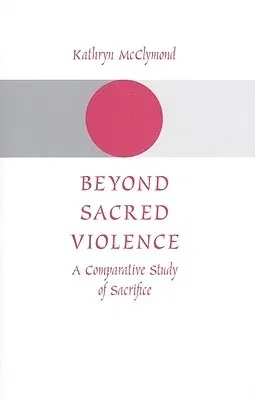Winner, 2009 Georgia Author of the Year Award for Creative Nonfiction
For many Westerners, the term sacrifice is associated with ancient,
often primitive ritual practices. It suggests the death--frequently
violent, often bloody--of an animal victim, usually with the aim of
atoning for human guilt. Sacrifice is a serious ritual, culminating in a
dramatic event. The reality of religious sacrificial acts across the
globe and throughout history is, however, more expansive and inclusive.
In Beyond Sacred Violence, Kathryn McClymond argues that the modern
Western world's reductive understanding of sacrifice simplifies an
enormously broad and dynamic cluster of religious activities. Drawing on
a comparative study of Vedic and Jewish sacrificial practices, she
demonstrates not only that sacrifice has no single, essential,
identifying characteristic but also that the elements most frequently
attributed to such acts--death and violence--are not universal.
McClymond reveals that the world of religious sacrifice varies greatly,
including grain-based offerings, precious liquids, and complex
interdependent activities.
Engagingly argued and written, Beyond Sacred Violence significantly
extends our understanding of religious sacrifice and serves as a timely
reminder that the field of religious studies is largely framed by
Christianity.

